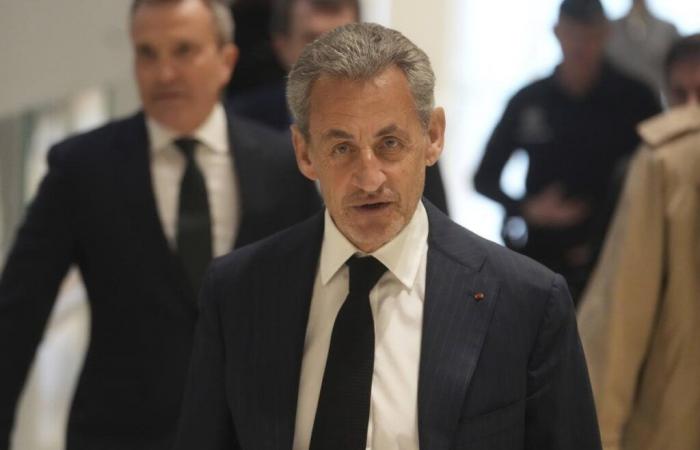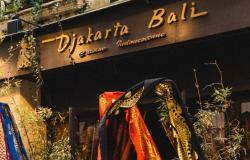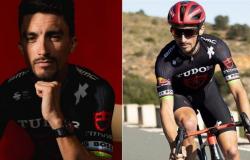
Nicolas Sarkozy, on the first day of the Libyan trial, Monday January 6 at the Paris court. THIBAULT CAMUS/AP/SIPA
Read later
Google News
Share
Facebook
Twitter
E-mail
Copy link
Send
Reading time: 3 min.
Free access
Narrative
The trial of alleged Libyan financing of Nicolas Sarkozy’s 2007 presidential campaign has just opened for four months in a tense atmosphere. The former president is being tried there in particular for “corruption and criminal conspiracy”. This is his fifth trial in five years.
It started strong at the trial over the supposed Libyan financing of Nicolas Sarkozy’s 2007 presidential campaign. The hearing had started barely a few hours ago when one of the defenders of the former President of the Republic, Jean-Michel Darrois, who contested the competence of a common law court to judge his client prosecuted for “corruption and association of criminals”, although according to him he would fall under the special jurisdiction of the Court of Justice of the Republic, accused the judges of going after his client and reserving a particular fate for him. “Let me warn you, he addressed to the president of the 32e correctional room, Nathalie Gavarino. The prosecution is trying to drag you into a dark tunnel, onto the rubble of our Constitution and the presumption of innocence; by declaring yourself competent [au nom du tribunal]you will seriously undermine the spirit of our institutions and the separation of powers. »
Also read
Decryption
Libyan financing trial: why Nicolas Sarkozy and three former ministers are on trial for corruption
Subscriber
Read later
The reaction of prosecutor Quentin Dandoy, responsible, with his colleagues Philippe Jaeglé and Sébastien de la Touanne, of bringing the accusation on behalf of the National Financial Prosecutor’s Office, was strong, especially since this question of the jurisdiction of the court has already been decided by a judgment of the investigating chamber dated September 20, 2020. “This fable that Nicolas Sarkozy would be the victim of an association of prosecutors and magistrates, who would have gathered at the refreshment bar of the Palace of Justice to seal an agreement against him, seriously undermines the independence of justice; she is not up to your career or your talent”, he said to Maître Darrois, before being reprimanded by the president: “Speech is free within the confines of the palace, but irony does not necessarily have its place there. » The tone is set on this first day of the most serious political affair ever judged under the Fifth Republic.
A corruption pact with Gaddafi?
This trial, which will last from January 6 to April 10, far exceeds, in its size and the seriousness of the alleged facts, the five other cases in which the name of Nicolas Sarkozy still appears, who has just been definitively sentenced on December 18 to three years in prison, one of which is closed, for corruption and influence peddling in the Bismuth affair. In this Libyan financing case, the public prosecutor accuses the thirteen defendants of having participated in a corruption pact sealed between the close entourage of Nicolas Sarkozy and the regime of Colonel Gaddafi in the fall of 2005, which was based on the promise of economic and diplomatic support from France to Libya, in exchange for financial participation – for at least six million euros, traces of which have been found – in the presidential campaign of Nicolas Sarkozy of 2007.
The unprecedented dimension of this superlative trial is reflected in a few figures: 270 journalists, a third of whom work for foreign media, were accredited to follow it, the investigation lasted eleven years, the file has 4759 references, collected in 73 volumes , 54 searches were carried out, and requests for international assistance sent to 21 countries, from South Africa to Lebanon, including Singapore and Switzerland. Eight defendants had responded to the court summons – the Malaysian lawyer, Sivajothi Rajendram, is presumed dead, the Franco-Lebanese intermediary, Ziad Takieddine, and the former Libyan dignitary Bechir Saleh, are on the run, two businessmen Saudis, Ahmed and Khalid Bugshan, are expected to appear later.
A former president and three former ministers
In the front row of the defendants, side by side this Monday, December 6, four men who have held the most prestigious positions in the Republic. From right to left, Nicolas Sarkozy and three of his former ministers, Eric Woerth, Brice Hortefeux and Claude Guéant, who were not asked to speak during this hearing devoted to the examination of procedural questions. But Nicolas Sarkozy could not help but react when the financial prosecutor Dandoy insisted, in response to Maître Darrois, that “the embezzlement of public funds and acts of corruption [reprochés à l’ancien chef de l’Etat] cannot have been committed in the interest of the Nation”, SO does not come under the jurisdiction of the Court of Justice of the Republic – “It’s scary, scary”grumbled Nicolas Sarkozy, immediately called to order by the president.
In short, this trial will also be that of the abuses of political financing under the Ve Republic, abuses which would have culminated in the shadow of Nicolas Sarkozy, while the various laws on the transparency of public life passed since the 1990s were supposed to put an end to the suitcases of tickets. There are few precedents for this trial. It took thirty years to see the Karachi case judged, which notably targeted the hidden financing of Edouard Balladur’s 1995 presidential campaign, suspicions of which the Court of Justice of the Republic cleared the former Prime Minister in 2021, while the intermediary Ziad Takieddine and the advisor Thierry Gaubert, ex-collaborator of Nicolas Sarkozy, had been sentenced by a criminal court at first instance the previous year – they will be two central characters of the Libyan trial. Furthermore, Jacques Chirac is the only President of the Republic to have been convicted of embezzlement and breach of trust, in the context of the affair of fictitious jobs at Paris town hall.
By Caroline Michel-Aguirre





